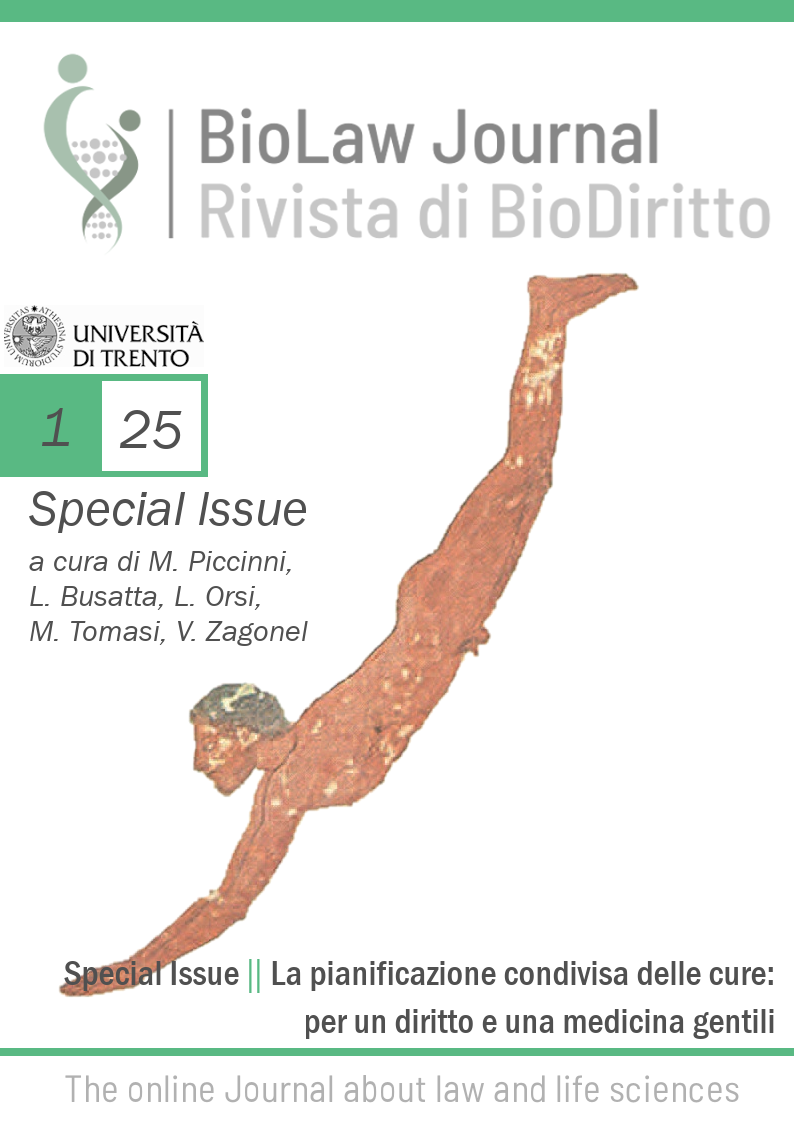How, when, and why to implement shared care planning in the community. reflections based on a story of care
DOI:
https://doi.org/10.15168/2284-4503-3417Keywords:
Community-based shared care planning, community-based palliative care, relational autonomy, patient-centred care, end-of-life careAbstract
This essay reflects on the reasons, methods, and timing for developing shared care planning (SCP) for patients receiving home care. Using the real-life story of an elderly woman and her son as a starting point, it examines the ethical-anthropological value and the legal importance of SCP. The authors highlight how SCP facilitates meaningful communication between patients, families, and healthcare professionals; enables early identification of needs and desires; promotes sharing among all involved in care; and contributes to effective use of resources. They argue that SCP is highly recommended for assisting fragile patients or those with chronic degenerative diseases at home, emphasizing the need for general practitioners to possess adequate knowledge and skills to implement it effectively.
Downloads
Published
How to Cite
Issue
Section
License

This work is licensed under a Creative Commons Attribution-NonCommercial-NoDerivatives 4.0 International License.





